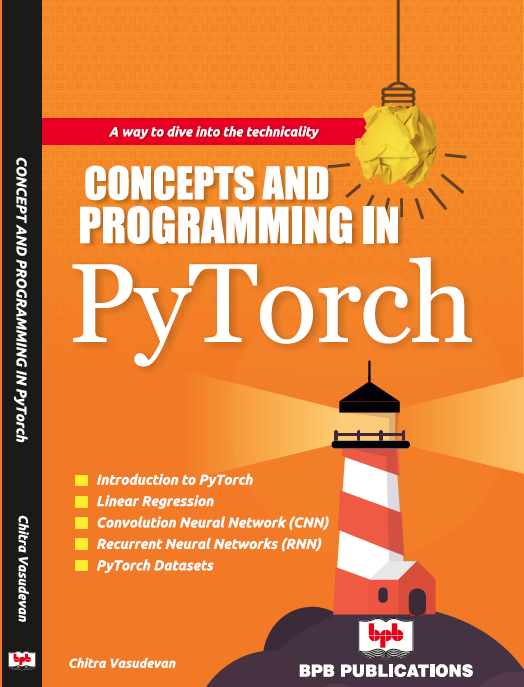
Concepts and Programming in PyTorch
FREE PREVIEW
ISBN: 9789387284296
Authors: Chitra Vasudevan
Rights: Worldwide
Publishing Date: January 2018
Pages: 174
Weight:
Dimension:
Authors: Chitra Vasudevan
Rights: Worldwide
Publishing Date: January 2018
Pages: 174
Weight:
Dimension:
Book Type: Paperback
DESCRIPTION
TABLE OF CONTENTS
ABOUT THE AUTHORS
Choose options

Concepts and Programming in PyTorch
Sale priceRs. 498

